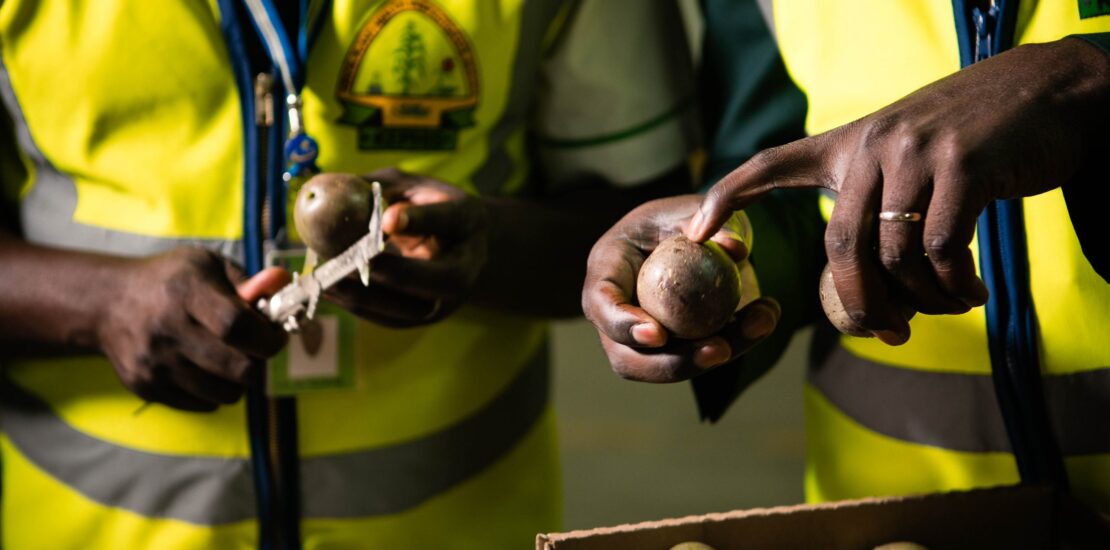IPPC/FAO RELEASE GUIDELINES
- 26/11/2021
- Posted by: Sandra Borma
- Category: Angola, Cameroon, Caribbean, Ethiopia, Gambia, Ghana, Kenya, Mauritius, News, Nigeria, Pacific, Rwanda, Sierra Leone, Tanzania, Uganda, Zimbabwe
No Comments On 18 November the International Plant Protection Convention (IPPC) Secretariat and the Food and Agriculture Organization (FAO) released new guidelines on fall armyworm (FAW): “Prevention, preparedness and response guidelines for Spodoptera frugiperda“. Fall armyworm is affecting plant health in more than 70 countries, with many others at high risk of introduction. The guidelines offer globally harmonized measures and actions that countries can take to minimise the spread of the pest and protect their territories. It is a transboundary pest that… +
On 18 November the International Plant Protection Convention (IPPC) Secretariat and the Food and Agriculture Organization (FAO) released new guidelines on fall armyworm (FAW): “Prevention, preparedness and response guidelines for Spodoptera frugiperda“. Fall armyworm is affecting plant health in more than 70 countries, with many others at high risk of introduction. The guidelines offer globally harmonized measures and actions that countries can take to minimise the spread of the pest and protect their territories. It is a transboundary pest that… +Training for NPPO inspectors: Organisation and implementation of official controls
- 21/04/2021
- Posted by: Gaetan Dermien
- Category: Africa, Caribbean, News, Pacific
 COLEACP’s online training for National Plant Protection Organisations (NPPOs) tackles both the organisation and the implementation (enforcement) of official sanitary and phytosanitary (SPS) controls. Organisation of official controls Participants in this series learn how to design and supervise the implementation of a system of official SPS controls adapted to the requirements of the International Plant Protection Convention (IPPC), and particularly relating to the new requirements of the EU plant health legislation that came into force in December 2019. In April… +
COLEACP’s online training for National Plant Protection Organisations (NPPOs) tackles both the organisation and the implementation (enforcement) of official sanitary and phytosanitary (SPS) controls. Organisation of official controls Participants in this series learn how to design and supervise the implementation of a system of official SPS controls adapted to the requirements of the International Plant Protection Convention (IPPC), and particularly relating to the new requirements of the EU plant health legislation that came into force in December 2019. In April… +IPPC Capacity Development guides now available in French
- 12/11/2020
- Posted by: Emmanuel Bourcelet
- Category: News
 In the field of plant health, the International Plant Protection Convention (IPPC) is the world’s reference organisation. It offers many high-quality publications, including Capacity Development guides that support the activities of National Plant Protection Organisations (NPPOs). COLEACP has been collaborating with the IPPC to co-publish French versions of eight of these guides, which were originally published in English, particularly with the intention of making them available to the francophone countries in West Africa. The guides draw extensively on requirements specified… +
In the field of plant health, the International Plant Protection Convention (IPPC) is the world’s reference organisation. It offers many high-quality publications, including Capacity Development guides that support the activities of National Plant Protection Organisations (NPPOs). COLEACP has been collaborating with the IPPC to co-publish French versions of eight of these guides, which were originally published in English, particularly with the intention of making them available to the francophone countries in West Africa. The guides draw extensively on requirements specified… +
